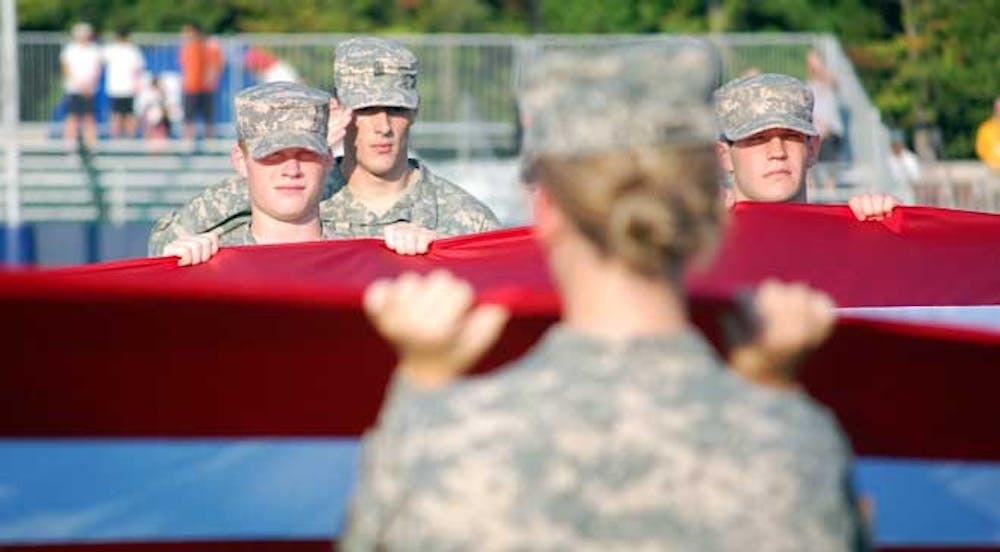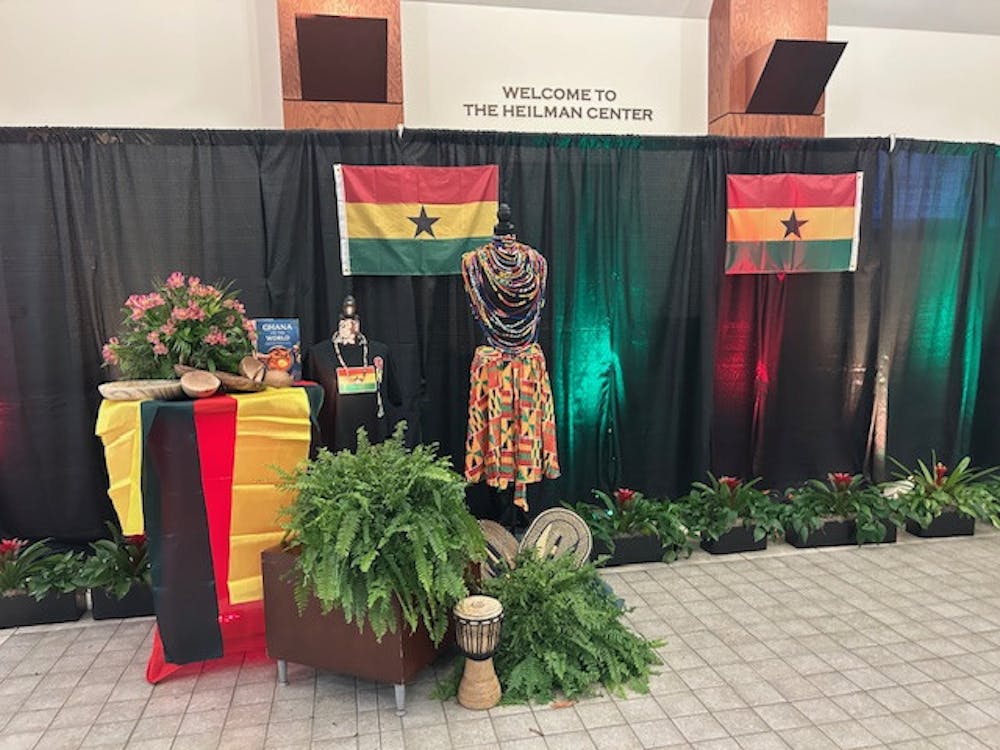I first heard about 9/11 when I met my mum outside my school. She told me what had happened and at that point everyone still thought it had been an accident. It is one of those events that you never forget where you were when you found out. Obviously as the afternoon went on, the truth became clear. I just remember how much the nation pulled together to support each other through such a terrible time. I visited Ground Zero when I was in the States and while an eerie atmosphere was present, more prevalent was the notion of pride in the nation and hope for the future.
- Katie Barker, a student at Edinburgh University who studied abroad at Richmond last year.
__________
I was a little girl when this happened -- just 11 years old. I didn't even know the word terrorist. I knew they attacked my country, our country, the one I had pledged allegiance to every day in school. I watched the events unfold on the television in my sixth-grade history classroom. Though the teacher explained it, I did not fully understand. Ten years have passed and, as an adult, I have a completely different understanding than I did as a child. I remember Sept. 11 because that day marked the day that I started to grow up. Despite the attacks and the ensuing war I am able to live with my basic freedoms intact. Because of the heroism of the police, firefighters, passengers of Flight 93 and other citizens on that day and the men and women who currently and have served in our military, the attacks changed us but did not destroy us. Until that morning I spoke the Pledge of Allegiance with a childlike innocence, now I pledge allegiance with the cognizance of an adult who has lived history; an adult, who in her heart, is proud to be a citizen of the United States of America.
- Rianna DiBartolo-Cordovano, senior
__________
I was in graduate school at the time, getting my master's degree in public policy at Georgetown. I was working at a part-time job about a half mile away from the Pentagon on the morning of 9/11. Shortly after 9 a.m., I distinctly remember feeling a jolt in my office. Minutes later, I noticed bits of debris falling down from the sky. Then, the phone rang, and it was my sister crying and hysterical that I might have been killed. I assured her I was fine. Then, checking the Internet, it dawned on me that our nation was under attack. I saw the images online of the Twin Towers being pummeled. Hours later, I learned that one of my Georgetown professors, Leslie A. Wittington, had been killed along with her husband and two young girls -- Zoe and Dana -- in the flight that hit the Pentagon. Later that night, several of my Georgetown classmates and I gathered at a cafe, realizing how much the world had changed in a few short hours.
On an intellectual level, it was the experience of 9/11 that drove my interests in studying the sources and consequences of anti-Americanism. Last semester, I taught a first year seminar on the topic. This summer, I finished my book manuscript on anti-Americanism's impact on the United States and its national interest. On a normative level, my hope is to help bridge the gap between how others see the United States and how American policymakers believe the world sees it. I think there is quite a large gap.
- Monti Narayan Datta, professor of political science
__________
Sept. 11, 2001 was my and my husband's second anniversary as well as the start of my teaching career here at Richmond. He was working in D.C. not far from the White House at the time. I can't remember anything about my classes that day other than trying to find out if he was OK. My head was just not in teaching. Because I was so new to teaching, I can't say it changed how I taught. I can say that in the years after, I felt as if a vacuum had sucked out all interest in domestic economic issues (which I teach) and almost all the attention was on national security. The downturn in the economy has brought student attention back to domestic affairs, but almost to the extent that we forget about foreign affairs.
- Jennifer Erkulwater, professor of political science
Enjoy what you're reading?
Signup for our newsletter
__________
On Sept. 11, 2001, I was a Ph.D. student at the University of North Carolina, but I was already teaching courses at that point because it was part of my tuition and stipend deal with the department. I was actually sequestered in a small room in the library for most of the day because I was taking my comprehensive examination, an eight hour exam covering my Ph.D. coursework. When I went to the department office to turn it in, everyone was standing around the doorway of a professor's office watching his television, and they told me what had happened. My girlfriend (now wife) was a lobbyist in D.C. at the time, so my first thought was to call her and see if she was OK, which was tough because the phone lines and cell networks were jammed with calls. Luckily she and everyone else I knew in D.C. were OK, but two of them had been on the bridge next to the Pentagon when the plane hit that building and were extremely upset.
The attacks definitely changed my teaching, since my subject is international relations. Before Sept. 11, the hot topics of the time were the development of the post-Cold War international system, the American role in that system and the positive and negative aspects of globalization. Very few people were researching terrorist groups, and there was only a small part of the academic literature devoted to the topic. The result in my department at the time and the others I've been in since the attacks has been a much more serious attitude toward unconventional security threats, transnational issues, insurgency and counter-insurgency and perceptions of America in the developing world.
That said, I think that most scholars of international relations have tried not to switch their emphasis completely to terrorism and asymmetric conflict because the international system is still defined almost wholly by traditional great power politics and the institutions designed by those great powers. It's important that we not mistake the psychological shock of Sept. 11 for a truly lasting change in world politics, which is still dominated by the great powers.
- Stephen B. Long, professor of political science & international studies
Support independent student media
You can make a tax-deductible donation by clicking the button below, which takes you to our secure PayPal account. The page is set up to receive contributions in whatever amount you designate. We look forward to using the money we raise to further our mission of providing honest and accurate information to students, faculty, staff, alumni and others in the general public.
Donate Now



